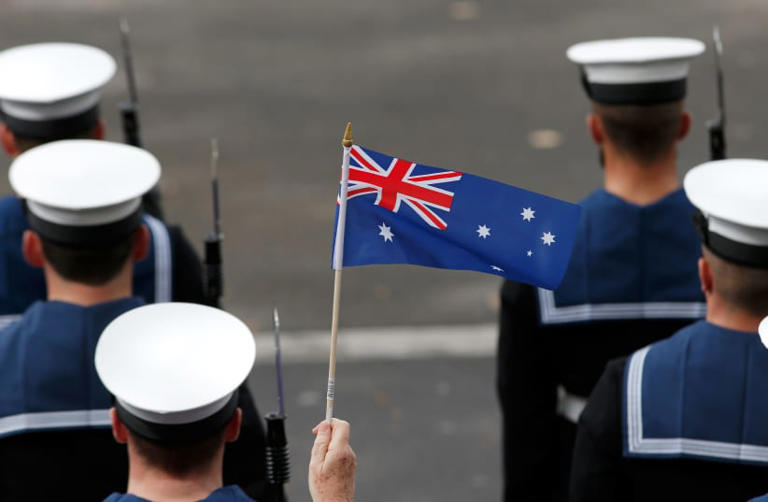Jewish Officer Exits Australian Defence After Security Clearance Revoked Over Israel Loyalty
In a contentious move that has sparked debate around dual loyalty and national security, a Jewish officer in the Australian Defence Force (ADF) has departed from his position after having his security clearance revoked. The officer, whose identity has not been disclosed, was stripped of his clearance due to concerns that his allegiance to Israel surpassed his loyalty to Australia. This decision culminated in a failed appeal in February, where he argued that the policy against dual allegiances was discriminatory.
Background & Context
The issue of dual loyalty has long been a sensitive topic in various nations, particularly in contexts involving minority communities. In Australia, the ADF has strict regulations regarding security clearances, particularly for those in sensitive positions. The officer"s case brings to light the complexities surrounding personal allegiance versus national duty, especially within the Jewish community, which has historically faced scrutiny over issues of loyalty.
This incident is particularly significant in the wake of rising global tensions surrounding Israel and Palestine. The Jewish officer"s situation highlights the intricate balance between personal beliefs and professional responsibilities within a military context. As previously reported, cases involving allegations of dual loyalty have surfaced in other countries, prompting discussions about civil rights and the treatment of minority groups in national institutions.
Key Developments
The officer"s appeal to retain his security clearance was rejected by military authorities, who cited concerns about potential conflicts of interest. This decision was rooted in the ADF"s stringent policies designed to ensure that personnel maintain an unwavering commitment to Australia, particularly in positions that could impact national security. The officer contended that the policy was discriminatory, arguing that it unfairly targeted individuals with ties to specific foreign nations, such as Israel.
In a statement following his departure, the officer expressed his disappointment with the outcome, asserting that loyalty to one"s heritage should not preclude service to one"s country. "It"s disheartening to feel that my commitment to both Australia and Israel is viewed as a liability," he remarked, emphasizing the importance of acknowledging diverse identities within the armed forces. The implications of his case extend beyond personal ramifications, raising questions about the ADF"s policies and their impact on recruitment and retention of diverse talent.
\n\n
Image for Jewish Officer Exits Australian Defence After Security Clearance Revoked Over Israel Loyalty
Broader Impact
The revocation of the officer"s security clearance has elicited a range of reactions from community leaders and human rights advocates. Some argue that the ADF"s policies may inadvertently alienate individuals from minority backgrounds, discouraging them from pursuing careers in national defense. Experts in civil rights have highlighted the need for a reevaluation of such policies to foster inclusivity while maintaining national security.
This incident mirrors similar situations in other nations, where military and government policies have come under fire for perceived biases against individuals based on their ethnic or religious identities. The conversation raises critical questions about how nations can balance security concerns with the fundamental principles of equality and non-discrimination. Recent developments in this area have also been reflected in broader political discussions surrounding the rights of individuals in the context of national loyalty, as seen in the ongoing debates regarding the MAGA Movement and its implications on various communities.
What"s Next
The departure of this officer from the ADF signals a potential shift in how the military may address issues of identity and loyalty moving forward. As discussions continue around dual allegiance, policymakers may be prompted to review existing regulations to ensure they are equitable and reflective of Australia’s multicultural society. The Australian Defence Force may also face pressure to engage in dialogue with community leaders to address concerns and implement reforms that promote inclusivity.
As the conversation unfolds, it will be essential to monitor how the ADF and other institutions adapt to the evolving landscape of national security and civil rights. The implications of this case extend beyond the individual, potentially influencing recruitment strategies and shaping the future of military service in Australia.

Image for Jewish Officer Exits Australian Defence After Security Clearance Revoked Over Israel Loyalty

![[Video] Iranian security forces injure woman in Mashhad; death toll exceeds 3,000](/_next/image?url=%2Fapi%2Fimage%2Fthumbnails%2Fthumbnail-1768338642591-z7mptn-thumbnail.jpg&w=3840&q=75)
![[Video] Federal agents drop tear gas canisters from moving vehicles in neighborhood](/_next/image?url=%2Fapi%2Fimage%2Fthumbnails%2Fthumbnail-1768336360849-hrwza-thumbnail.jpg&w=3840&q=75)
![[Video] Protesters surround federal agents at Target in Minneapolis](/_next/image?url=%2Fapi%2Fimage%2Fthumbnails%2Fthumbnail-1768331517834-1384td-thumbnail.jpg&w=3840&q=75)



![[Video] Gunfire between Iraqi security forces and Sadr militias in Baghdad](/_next/image?url=%2Fapi%2Fimage%2Fthumbnails%2Fthumbnail-1768343508874-4redb-thumbnail.jpg&w=3840&q=75)
